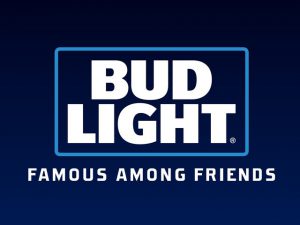
Anheuser-Busch InBev today reported its second-quarter and half-year earnings results, outlining global revenue growth of 5 percent in Q2 despite continued challenges in the U.S., the company’s largest individual market.
While worldwide revenue grew 4.4 percent through the first six months of the year, A-B InBev reported U.S. revenue declines of 0.2 percent in the second-quarter and 1.3 percent in the first half of year. U.S. revenue per hectoliter grew by 0.9 percent during the quarter — which the company said was “negatively impacted by brand shipment mix” — and 1.5 percent during the first half of the year, however.
Despite acquiring 10 domestic craft breweries over the last six years, A-B InBev still hasn’t been able to curb volume losses in the U.S., where the global beer giant lost more than 14 million barrels between 2008 and 2016. Midway through 2017, A-B InBev’s U.S. sales to retailers (depletions) had declined 3 percent, trailing estimated industry STR declines of 1.1 percent, the company reported.

Globally, however, A-B InBev’s beer volumes increased 2.1 percent during the quarter and 1 percent during the first half of the year.
“Our performance at the halfway mark of 2017 is promising,” Anheuser-Busch InBev CEO Carlos Brito said during a call with investors on Thursday. “While we are not satisfied with our market share performance in the U.S., nor our financials in Brazil, we have delivered strong top line results in most every other market and are pleased to see the company’s growth accelerated.”
In the U.S., shipments to wholesalers declined 1.1 percent in Q2 and 2.7 percent during the first six months of the year. The company said its STRs and STWs had “converged” during the first half of 2017 “with stock levels well-placed to meet summer demand.”
The company also estimated that its U.S. market share had declined about 85 basis points on the year. Brito added that A-B InBev’s above premium brands — including Michelob Ultra, Stella Artois and its various craft beer offerings — helped soften the blow, however. Those offerings helped the company gain back 30 basis points through June.
“We are not pleased with our market share performance, and we will continue to work to balance the share and profitability equation while fine tuning our regional pack-price strategy and leveraging our strong wholesaler system,” Anheuser-Busch InBev CEO Carlos Brito said during an investors call.

The strong performance from those above premium brands also helped offset continued declines from flagships Budweiser and Bud Light.
Michelob Ultra continued its streak as the No. 1 share gainer in the U.S. for the ninth consecutive quarter, and the brand had the “highest quarterly share gain” over the past five years, which Brito said affirmed the company’s “belief that further acceleration is possible through increased awareness and penetration.”
Stella Artois, meanwhile, posted mid-single digit STR growth, which helped make the brand “the fastest growing European imported beer,” Brito said, citing data from market research firm IRI Worldwide.
Without naming any of the 10 craft beer brands now anchored within A-B InBev’s ‘The High End’ division, Brito said the portfolio “continued to grow ahead of the slowing craft segment.”

Conversely, Brito added, Bud Light and Budweiser “remain under pressure” as consumers “trade-up to high end brands.” Budweiser and Bud Light lost 40 basis points and 90 basis points of share in the second quarter, respectively.
During a question-and-answer session with analysts, Brito was asked about the company’s recent acquisition of San Francisco-based Hiball Inc., maker of energy drinks, sparkling waters and cold brew coffees. The analyst wondered why A-B InBev would invest in “a small, little brand” as opposed to seeking to acquire a much larger player, such as Red Bull. Brito called the Hiball acquisition a “disruptive play.”
“The fact that they’re small but with big potential, doesn’t scare us because we’re owners, we’re here for the long term,” he said. “If it takes five to 10 years to scale, that’s fine.”

Revenue for the company’s global brands — Budweiser, Stella Artois and Corona (which it owns outside of the U.S.) — increased 8.9 percent during the second quarter.
Global Budweiser revenues also grew 5.7 percent during the quarter, as the brand achieved double-digit growth in China, South Korea, Brazil and the United Kingdom. Stella Artois revenues increased 6.6 percent, driven by growth in Argentina, South Korea, Canada and Australia. And Corona revenues increased 16.6 percent, with continued growth coming from China, Colombia and the United Kingdom.
A-B InBev also said it captured $335 million in synergies during the second quarter, following the $100 billion-plus merger with SABMiller. To date, the company has realized more than $1.4 billion in synergies.
Wall Street responded favorably to Thursday’s earnings results as shares of A-B InBev (ABI) were up nearly 7 percent in early trading, according to CNBC.
